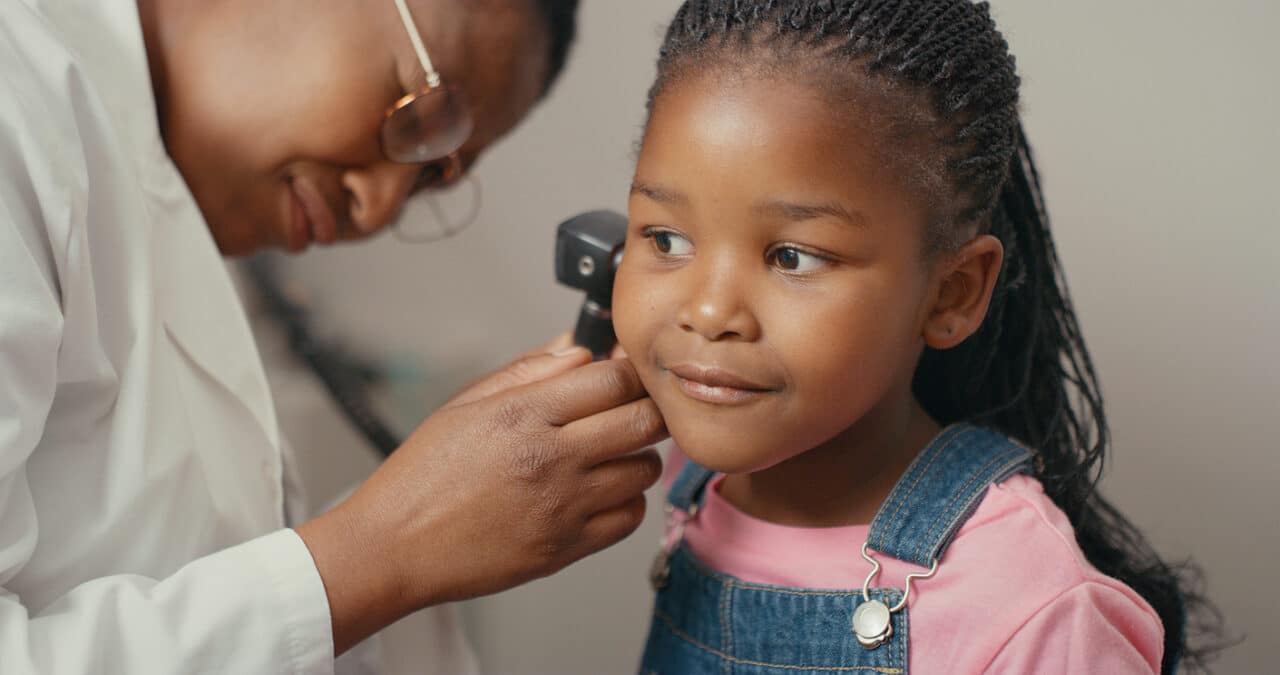Glue ear (also known as otitis media with effusion) is a common condition affecting approximately eight out of every ten children before age ten. Characterized by the accumulation of sticky fluid in the middle ear, glue ear can cause symptoms including:
- Temporarily muffled hearing
- Buzzing or ringing noise in the ear (tinnitus)
- Lack of concentration
- Fussiness
- Sleepiness
Let’s look at a few causes of glue ear and what you can do to help your child feel better.
Glue Ear Causes

Fluid retention after an ear infection and a blocked Eustachian tube are the primary causes of glue ear. Several factors can lead to these blockages, including colds and flu, small Eustachian tubes, allergies, enlarged adenoids (glands near the ears), changes in air pressure and chronic acid reflux.
Diagnosis and Treatment Options
If you suspect your child has glue ear, it’s essential to consult their ENT provider. Diagnosis may involve the following two tests:
- Otoscopy. During an otoscopy, your ENT provider will use a small scope to look inside your child’s ear and check for fluid.
- Tympanometry. A tympanometry test measures the movement of the eardrum in response to changes in air pressure, helping to detect fluid.
The treatment for glue ear depends on the severity and duration of the condition. In many cases, glue ear resolves on its own within a few months. During this period, your ENT specialist may recommend you wait to see if your child’s symptoms resolve independently. If their symptoms do not resolve within the waiting period, your specialist may recommend treatment, including antibiotics or ear tubes.
- Antibiotics. Antibiotics may be prescribed to address the underlying infection contributing to glue ear.
- Ear tubes. Ear tubes are small, hollow devices inserted into the eardrum to aid fluid drainage. They can be placed during an active glue ear infection to help clear the fluid or after the infection has resolved to prevent future instances.
Tips To Help Your Child Feel Better
Glue ear can cause your child to feel grumpy, tired and miserable. Try a few of the following tips to help cheer them up:
- Grab a few of their favorite foods or a pint of ice cream from Marble Slab Creamery to cheer them up.
- If they’re feeling up for it, they may also enjoy riding a bike or visiting their favorite playground.
- Read a few books or watch some fun movies with your child.
Glue ear is a common and manageable condition in children. You can help ensure your child’s ear health and overall well-being by understanding the symptoms, diagnosis and treatment options. To learn more about managing your child’s ear health, contact Southeast Texas Ear, Nose & Throat, LLP today to schedule an appointment with one of our specialists.